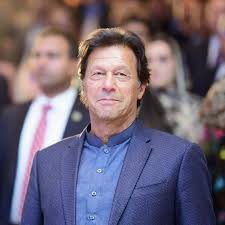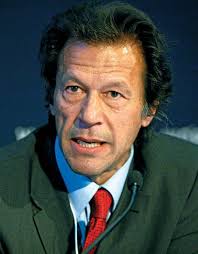Imran Khan: A Journey of Triumphs, Challenges, and Leadership

Imran Khan's life has been a remarkable journey,
transitioning from the cricket pitch to the political arena, marked by triumphs, challenges, and an unwavering commitment to shaping the destiny of Pakistan. Born on October 5, 1952, in Lahore, Khan's initial fame stemmed from his cricketing prowess. As the captain of the Pakistan cricket team, he led the nation to its first-ever World Cup victory in 1992, etching his name in sporting history.
However,
Khan's ambitions extended beyond the cricket field. In 1996, he founded the Pakistan Tehreek-e-Insaf (PTI) party, driven by a vision of transforming Pakistan's political landscape. Khan's charisma and leadership qualities began to resonate with a populace disillusioned with traditional politics, marking the inception of his political journey.
The challenges faced by Imran Khan in politics have been as formidable as his triumphs on the cricket pitch.
The early years of PTI were met with skepticism and criticism, with opponents questioning his political acumen. Despite this, Khan's perseverance and ability to connect with the youth and disenfranchised segments of society gradually garnered support.
Critics,
however, have not been silent. Allegations of election irregularities and economic mismanagement have cast shadows on Khan's leadership. The intricacies of governance, economic reforms, and foreign relations have presented complex challenges for his government. Balancing the demands of a diverse and populous nation like Pakistan has required a delicate and nuanced approach.
Economically,
Imran Khan's government implemented reforms aimed at stabilizing Pakistan's financial situation. A combination of austerity measures, tax reforms, and seeking international aid became part of his strategy. However, the effectiveness of these measures remains a subject of ongoing debate.
On the international stage,
Khan's approach to foreign relations has been closely watched. Striving for peaceful coexistence with neighboring countries, particularly India and Afghanistan, has been a focal point. Navigating the geopolitical complexities of the region while addressing domestic priorities has added another layer of challenge to his leadership.
Beyond the political sphere,
Imran Khan has left an indelible mark through his humanitarian initiatives. The Shaukat Khanum Memorial Cancer Hospital, established in memory of his mother, provides free cancer treatment to thousands. His advocacy for environmental conservation reflects a commitment to broader societal well-being.
As Khan addresses domestic issues like poverty,
education, and healthcare, the effectiveness of these social welfare programs remains a topic of scrutiny. The intricacies of uplifting a population with diverse needs and limited resources underscore the complexities of governance in Pakistan.

In conclusion,
Imran Khan's life is a testament to the transformative power of leadership. Whether on the cricket field or in the political arena, Khan's journey embodies the spirit of change and the pursuit of a better future for Pakistan. As he continues to navigate the challenges of leadership, his legacy serves as both inspiration and a reflection of the evolving dynamics of a nation at the crossroads of progress.Imran Khan is a powerful leader.He will control leadership in his country.


You must be logged in to post a comment.